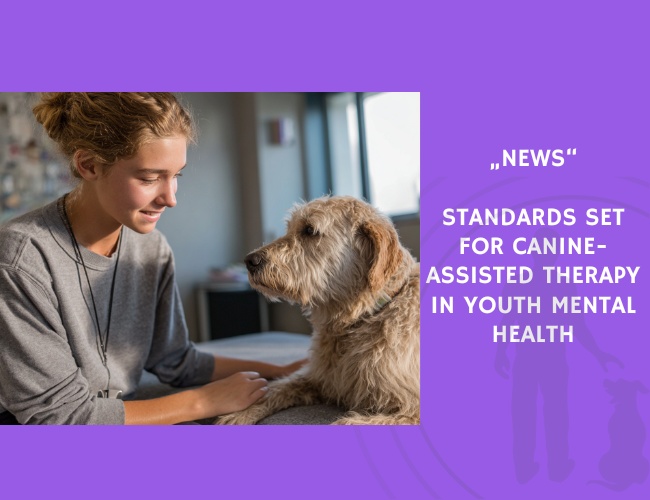A new expert consensus outlines essential minimum standards for safe and ethical canine-assisted psychotherapy (CAP) in adolescent mental health.
Canine-assisted psychotherapy (CAP) is gaining traction as an innovative intervention for adolescents with mental health challenges — but a lack of regulation raises ethical and safety concerns. A recent Delphi consensus study by Jones et al. (2023), published in Human-Animal Interactions, addresses this gap by proposing minimum standards for CAP implementations worldwide.
The study involved experts in animal-assisted therapy (AAT) who reached agreement on 34 core standards. These include formal licensure in mental health for providers, specialised training in AAT, and canine-specific education in behaviour and handling. Furthermore, therapy dogs must demonstrate suitable temperament traits (e.g. non-aggression, sociability), and be assessed by independent experts in canine ethology and AAT.
Importantly, the study recommends that dogs never operate independently or with providers lacking AAT training, regardless of the dog’s certification. It also calls for consistent terminology to differentiate structured psychotherapeutic treatment from informal animal contact. While international variance in CAP practice remains, the consensus marks a critical step toward professionalising and safeguarding CAP programs for vulnerable youth.
Published in Human-Animal Interactions, December 2023










